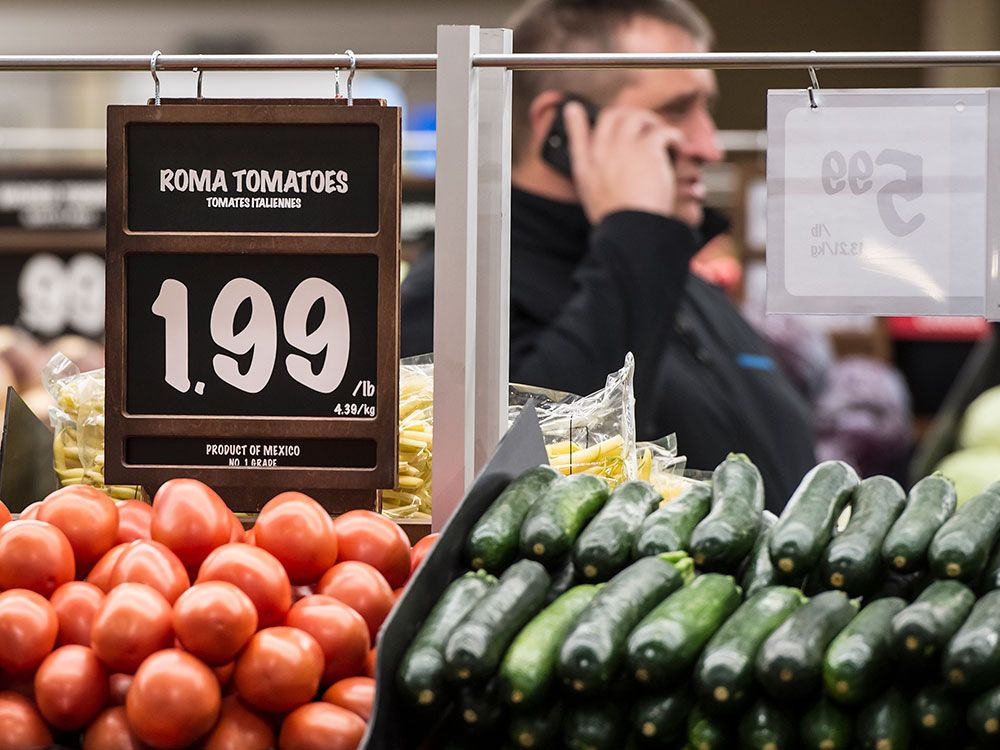Second CEO of major grocery chain to say prices are stabilizing

Article content
The worst of food inflation may be over as supplier demands for price increases appear to have subsided, said the head of one of Canada’s biggest grocery chains.
Advertisement 2
Article content
“The waves of cost increases are slowing down appreciably,” Michael Medline, chief executive of Sobeys’ parent Empire Co. Ltd., said in an interview on Sept. 15. “And, I’m not a sooth sayer, but we’re hoping that it’s going to lead to lower rates of inflation for consumers.”
Article content
Clashes between food producers and big grocers have been common during the past year and a half of rising inflation as both sides bickered — sometimes publicly — over who should be shouldering the brunt of higher costs for fuel, commodities and labour.
Canadian consumers have had to pay with grocery bills rising at the fastest pace in four decades, but if clashes between suppliers and grocers are dying down, it may be a sign food inflation is at or nearing its peak.
Advertisement 3
Article content
Medline’s comments echo remarks made by Galen Weston, chief executive at Loblaw Companies Ltd., who said in July that he was starting to see signs of “stabilization.”
“Having said that, supplier costs are still high, putting sustained pressure on retail prices,” Weston said.
In the food business, if a supplier producer wants to charge a grocer more to offset unexpected costs, they have to ask them to voluntarily pay extra. The grocer can ask the supplier to show why they need the increase — which can put the supplier in an awkward position of having to hand over internal data to a grocer who also owns private label brands that compete with the supplier’s products.
If the grocer accepts an increase, it has to decide whether to pass on the added cost to the consumer by increasing prices in store, or absorb the hit by taking slimmer margins. The grocer can also just refuse the increase, but that can lead to ugly disputes. PepsiCo Inc. pulled its Frito-Lay and Quaker products from Loblaw shelves as part of a pricing quarrel. The global confectionary giant Mondelēz International, Inc. also stopped delivering Oreos and other biscuit brands to Loblaw — a drastic move known in the industry as a “stop ship.”
Advertisement 4
Article content
“We push back pretty hard and obviously we get a lot of cost increase requests,” Medline said. “Sometimes, we didn’t think they were backed by facts and we didn’t take them.”
Medline, whose chain of 1,600 stores includes Sobeys, FreshCo, Safeway, IGA, Foodland, Longo’s and Farm Boy, confirmed Empire has been in the same situation.
“Yes, we get to those points and usually when we get to that point, we work it out,” he said. “But it’s come very, very close a number of times — even to a point where we probably had some that stop shipping but it wouldn’t be noticeable in the store because it picked up very soon thereafter.”
Cost increases are reaching consumers. Statistics Canada’s latest Consumer Price Index report showed grocery bills were up 9.9 per cent in July compared to the same month last year.
Advertisement 5
Article content
Rising prices have stoked resentment among shoppers and consumer advocates have publicly criticized the grocery industry for increasing profits and rewarding shareholders with dividend increases and share buybacks when some consumers can no longer afford their grocery bills.
At Empire’s annual general meeting on Sept. 15, Medline lashed out at those critics and said accusations of price gouging are “reckless and incendiary.” Earlier that day, Empire reported net income of $187.5 million in its first quarter, little changed from a year earlier.
“Quite frankly, I am tired of these armchair quarterbacks who make little effort to understand even the basics of our business but are comfortable sitting on the sidelines pontificating about how Canadian companies are reaping unreasonable profits on the backs of inflation,” Medline said. “This is absolutely not true.”
Advertisement 6
Article content
Medline and other major players in the industry have said higher profits in the grocery industry are from other factors, including efficiency gains or the resurgence of drug store sales, not inflation or price gouging. But some accounting and auditing experts say it’s hard to confirm those statements using the data available in public financial statements.
David Macdonald, an economist at the Canadian Centre for Policy Alternatives who has written on the issue, noted that Statistics Canada reported pre-tax profit of $1.6 billion for Canadian food and beverage stores in the second quarter of this year, compared to $797 million in the same period in 2019.
“What isn’t in dispute here is that the profits are higher. How they became higher is potentially in dispute,” he said. “This industry is riding a wave of massive corporate profits.”
• Email: jedmiston@nationalpost.com | Twitter: jakeedmiston


